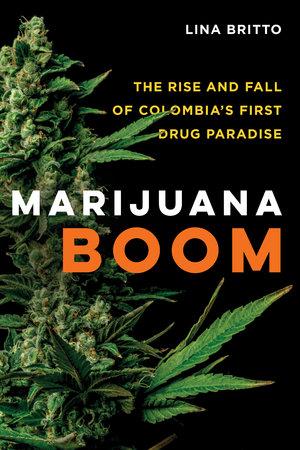With the signature of Gov. Andy Beshear (D) on Senate Bill 47 last Friday, Kentucky became the 38th state to make medical marijuana legal. The legislature had balked for years on medical marijuana, but Beshear pushed hard for it since he took office in late 2019.
In the face of continuing legislative inaction, Gov. Beshear formed the
Team Kentucky Medical Cannabis Advisory Committee in June 2022 to travel the state and listen to Kentuckians' views on the topic. On Sept. 30, 2022, the Governor
released the summary from the committee that proved Kentuckians agree that it is past time for the commonwealth to take action on legalizing medical cannabis.
Last fall, Beshear turned up the heat on the legislature by signing an executive order providing access to medical marijuana for Kentuckians who suffer from at least one of 21 medical conditions, including cancer, multiple sclerosis, post-traumatic stress disorder, muscular dystrophy and terminal illness. Beshear then worked with lawmakers this session to push for full legalization of medical marijuana, arguing it would further provide relief for those suffering, fuel job growth, and help support the state's farmers. And now, those efforts have paid off.
"In November, I signed an executive order to help Kentuckians with certain medical conditions, like our veterans suffering from PTSD, find safe and effective relief through medical cannabis," Beshear said. "Now, I am finally able to sign this legislation into law and fully legalize medical cannabis -- something the majority of Kentuckians support."
He wasn't the only one basking in the glow of victory.
"I am very happy to be here with friends to celebrate this special day. The signing of SB 47 comes after about five years of hard-fought legislative efforts," said bill sponsor Sen. Stephen West (R-Paris). "This bill is how the legislative process should work. Senate Bill 47 is probably one of the most vetted bills in the history of the General Assembly, going through numerous committees being worked and reworked numerous times. I am proud to be a part of that effort."
"It is a true honor to be here today to celebrate this momentous legislation. For far too long, we have had to depend on the pharmaceutical companies pushing substances that have been a bane to rural Kentucky. I come from Eastern Kentucky, and I have seen firsthand the devastation that opioids have brought on my region," said Sen. Phillip Wheeler (R-Pikeville). "I came here late to the issue, but I am glad I jumped on board and was able to play a small part in getting it over the finish line."
"This is how it is supposed to be done. I am filled with emotion. There are thousands and thousands of Kentuckians who just want to be and want to feel better. This will help them with that," said Rep. Jason Nemes (R-Louisville), the majority whip. "This is such a good bill because there will be tens of thousands of Kentuckians who will never know our names, who have never walked these halls, but will be helped. I am happy to have played a small part in that."
The Marijuana Policy Project (MPP) also pronounced itself pleased.
"Kentuckians who are suffering will finally be able to have access to safe, legal medical cannabis. We applaud the Kentucky legislature for recognizing the value of medical cannabis and passing legislation that will help provide relief and meet the needs of patients with serious medical conditions throughout the state, and are also grateful for the governor's championing of this compassionate issue," said Karen O'Keefe, MPP director of state policies.
The new law will go into effect on January 1, 2025, with regulations due to be in place by July 1, 2024. In the meantime, the executive order allowing for medical marijuana use will remain in effect, and residents can purchase medical marijuana out of state as well.
The new law will allow for the use of raw marijuana. It cannot be smoked, but vaping will be allowed. Patients will be allowed to keep a 30-day supply at home and a 10-day supply while traveling, with definitions to be provided by state regulators. Home cultivation will not be allowed.
The Cabinet of Health and Family Services will oversee the implementation, operation, oversight, and regulation of the medical program, while a nine-member Board of Physicians and Advisors will have prescriptive authority. It will make recommendations, including regarding how much cannabis constitutes a 10-day and 30-day supply, adding or removing qualifying conditions, and performance standards for medical cannabis businesses. And medical marijuana will be subject to state sales and excise taxes.
Welcome to the club, Kentucky.
back to top
More than 60 years after coca and cocaine were banned internationally under the Single Convention on Narcotic Drugs, 1961, and more than a half-century since the commencement of the modern war on drugs under US President Richard Nixon, cocaine is more popular and more prevalent than ever before. That is according to the United Nations Office on Drugs and Crime (UNODC), which just provided the evidence in its new report, The Global Report on Cocaine 2023.

Despite a half-century of the modern war on drugs, the cocaine trade is booming. (Creative Commons)
While the report covers a number of aspects of cocaine production and consumption, its most striking finding is that after hiccups caused by global shutdowns during the pandemic, cocaine has come roaring back.
"The COVID-19 pandemic had a disruptive effect on drug markets," UNODC found. "With international travel severely curtailed, producers struggled to get their product to market. Night clubs and bars were shut as officials ramped up their attempts to control the virus, causing demand to slump for drugs like cocaine that are often associated with those settings. However, the most recent data suggests this slump has had little impact on longer-term trends. The global supply of cocaine is at record levels. Almost 2,000 tons was produced in 2020, continuing a dramatic uptick in manufacture that began in 2014, when the total was less than half of today's levels."
UNODC found that cultivation of coca, the plant precursor to cocaine, increased a whopping 35 percent between 2020 and 2021, a record high and the largest year-over-year increase since 2016. The production of cocaine itself has been boosted by innovations in coca cultivation leading to larger yields and innovations in converting the plant into cocaine, also leading to larger yields.
That supply increase "has been matched by a similar swelling in demand, with many regions showing a steady rise in cocaine users over the past decade," UNODC wrote.
That is a product that is looking for and finding new markets, leading UNODC analysts to warn of continued growth in consumption.
"The surging global cocaine market has the potential to trigger large expansions in new regions where cocaine use has been limited in the past, especially Africa and Asia," said Chloé Carpentier, Chief of the Drug Research Section, Research and Trend Analysis Branch at UNODC.
"There has been a continuing growth in demand, with most regions showing steadily rising numbers of users over the past decade," the report noted. "Although these increases can be partly explained by population growth, there is also a rising prevalence of cocaine use."
Cocaine use remains a largely Western phenomenon, but that is changing. North America constituted 30 percent of global demand in 2020, with South America and the Caribbean accounting for 24 percent, and Western Europe accounting for 21 percent. Africa was a distant fourth at nine percent.
But Africa is increasingly involved in the cocaine trade, leading to a "serious risk" of increased consumption there, UNODC warned. "The role of Africa, especially West and Central Africa, as a transit zone for cocaine on its way to markets in Europe has picked up substantially since 2019," the report said. "Both the total quantity seized in Africa and the number of large seizures appear to have reached record levels."
One impact of the pandemic was that the reduction is passenger flights lessened traffickers' ability to use drug mules, and UNODC found that the use of international parcel services for cocaine smuggling surged in response.
"Some countries in West Africa noted a significant increase in [parcel and courier] services to smuggle small quantities of cocaine to Europe and beyond. In Costa Rica, smaller quantities of cocaine were being mailed to Asia, Africa and Europe concealed in goods such as books, religious images, and vehicle spare parts," the report said.
"The pandemic may have accelerated the trend, but traffickers had already been increasing their use of international mail services to get cocaine into Europe," it said. "Evidence from Spain and Argentina points to a longer-term decline in the use of drug mules on passenger flights. Both countries recorded instances of larger shipments being concealed in unaccompanied luggage."
While the report discussed increased international cooperation to combat the cocaine trade, there is little indication so far that international cooperation has been able to stop it. In fact, the report itself suggests the opposite. But there is no consideration given to alternatives to the cocaine prohibition regime.
back to top
Two New Jersey women who ate poppy seed bagels before going to the hospital to give birth, and were then reported for possible child abuse or neglect after testing positive for opiates, have filed complaints with state officials charging that the hospital that conducted the tests did so without their knowledge or consent. In doing so the hospital violated the state's law against discrimination on the basis of sex and pregnancy, they argued.

Eating poppy seed bagels can result in a positive drug test for opiates, and that can have consequences. (Pixabay)
Both women and their families were subjected to traumatic investigations by the DCPP during what should have been joyful first months with their new infants, shattering their trust in medical personnel and causing fear of further unnecessary intrusions by the state, their complaints say.
They are seeking to force both hospitals to end what they call an unlawful practice, as well as compensatory damages for emotional distress. They are being represented by the American Civil Liberties Union (ACLU) of New Jersey. Their case is the latest in which patients in several states -- including in New York, Illinois, and Pennsylvania -- have filed cases to challenge similar hospital practices, resulting in policy changes and monetary damages.
"No one should be subjected to unnecessary and nonconsensual drug tests. Our clients are sending a clear message to hospitals that these testing and reporting policies are unacceptable," said ACLU-NJ Staff Attorney Molly Linhorst. "Discriminatory testing policies like these upend what should be a time of joy for families, and so often subject them to further trauma and unwarranted investigation by the state."
"I felt like they were questioning my character and parenting skills," said Kate L. "I'm terrified of ever going to a hospital again; I'm always going to worry that our family could be torn apart. That's why we are doing all we can to stop this from happening to anyone else."
"I feel violated. This whole ordeal has been extremely stressful and has turned our lives upside down and now, because of what happened, I live in fear of medical tests and how they might be used against me as a mother," said Kaitlin K. "I found out later that the lab used a testing threshold far, far lower than what the federal government uses."
Maternal drug testing is not only discriminatory, but it and the decision on whether to report a positive result are also permeated with racial bias, with healthcare professionals are more likely to administer drug tests on pregnant Black women and their babies.
The practice is also opposed by health care providers who warn that it can deter people from seeking medical care during and after pregnancy. The American College of Obstetricians and Gynecologists specifically rejects drug testing in part of the legal consequences a positive test result can unleash.
Poppy seeds can lead to positive test results for opiates. "Research shows that morphine and codeine can sometimes be detected in the urine up to 48 hours after ingestion of poppy seeds from some pastries, such as bagels, muffins, and cakes," says the href="https://www.usada.org/spirit-of-sport/education/can-poppyseeds-cause-a-positive-drug-test/" target=_blank_>US Anti-Doping Agency, the national organization for US Olympic sports.
But positive drug tests from poppy seed bagels would not be a problem if doctors and hospitals were not doing such testing on patients without their knowledge or consent and with no good medical reason. Perhaps having to pay damages for the harm they inflicted on these two women will cause those hospitals to think twice.
back to top
Voters in Oklahoma resoundingly rejected the State Question 820 marijuana legalization initiative Tuesday in an election where it was the only thing on the ballot. With 99 percent of the vote in, it was losing 38.3 percent to 61.7 percent.
Because marijuana was the only item on the ballot, the number of people voting was much smaller than in last November's general election. Then, more than 1.1 million people cast ballots, but this week, only 566,000, or about half as many voters, turned out.
The initiative should have been on last November's general election ballot. The group behind the measure, Oklahomans for Sensible Marijuana Laws, turned in 69,000 more signatures than needed in a timely fashion, but private contractors hired by the Secretary of State's office took an excessive amount of time to verify the signatures.
Between that and questionable legal challenges from opponents, approval of the measure was so delayed that the state Supreme Court ruled weeks before the election that the measure would have to wait for the 2024 general election or until the governor or legislature calls a special election. Gov. Kevin Stitt (R) then announced the March 7 date.
The measure would have allowed people 21 and over to possess up to an ounce of marijuana and eight grams of marijuana concentrates and grow up to six plants and six seedlings at home. It also would have protected parents from losing custody or visitation rights solely because of marijuana use and states that parolees and probationers cannot be punished for marijuana use. Nor could the odor of marijuana or burnt marijuana be used as probable cause for police to infer that a crime had been committed. And it included a provision for the expungement of some past marijuana offenses.
The measure would have up a system of taxed, licensed, and regulated marijuana commerce, but for the first two years, marijuana business licenses would go only to existing medical marijuana businesses that have been operating for at least a year. The state is now also under a moratorium on new grower, processor and dispensary licenses until August 2024, meaning any potential new pot business operators would have had to wait awhile to get in the game.
The state's robust -- some would say Wild West -- medical marijuana system may have convinced some voters that further moves were not necessary. Under Oklahoma law, medical marijuana can be recommended for just about any condition, and the state has nearly 400,000 enrolled patients -- about 10 percent of all adults in the state. There are also already some 12,000 licensed medical marijuana businesses, some of which have been in the news for unsavory reasons.
Tuesday's defeat may embolden marijuana critics in the state legislature to move to tighten controls on the state's medical marijuana program.
"The anti-revolutionary forces want to return Oklahoma to their dream of this bygone era," said Lawrence Pasternack, a legalization advocate who's written extensively about marijuana in the state. "They see marijuana as anathema to that dream."
Those forces would include Republican Gov. Kevin Stitt and most of the state's Republican political establishment. Also prominent in the opposition camp was former Gov. Frank Keating, an ex-FBI agent, who headed the "no" campaign.
"Oklahoma is a law and order state," Stitt said after Tuesday's vote. "I remain committed to protecting Oklahomans and my administration will continue to hold bad actors accountable and crack down on illegal marijuana operations in our state."
It's been a tough run for marijuana legalization initiatives lately. Last November, Maryland and Missouri approved legal weed, but Arkansas, North Dakota, and South Dakota did not. And now Oklahoma has joined that red state rejectionist club, and the Republicans are casting the hairy eyeball on the existing medical marijuana system.
back to top
Marijuana Boom: The Rise and Fall of Colombia's First Drug Paradise by Lina Britto (2023, University of California Press, 332 pp., $29.95 PB)
The first time I smoked Colombian weed -- somewhere back around 1976 -- I toked up, scarfed down a bunch of Chips Ahoy cookies, and then had to pull over and puke on the side of the road. That stuff was so much stronger than the Mexican brick weed I was used to that it hit me like a trainwreck. Now, thanks to Colombian-born historian Lina Britto, I have a much clearer picture of who was behind that killer weed.
In Marijuana Boom, Britto adds elements of journalism, ethnography, and anthropology to her archival research to produce a rich, finely detailed portrait of northeastern Colombia, particularly the Greater Magdalena and the Guajira Peninsula, a long, skinny, mountainous arm poking out of Colombia into the Caribbean, and long a haven for maritime smuggling.
That is the heartland of the Colombian marijuana boom of the 1970s, but Britto situates the boom within a much larger and more complex context of national political projects to modernize and unify the country -- none of which succeeded in addressing issues of land tenure and social inequality, leading to repeated explosions of political violence and endemic social unrest. She also situates the marijuana boom squarely in the regional tradition of export agriculture booms, first bananas, then divi (a tree from which tannins for turning hides into leather can be extracted), followed by coffee.
And when the coffee boom petered out in the 1960s, all of the elements were in place for the next successful export commodity: marijuana. Marimba, as the locals called it (marijuana smugglers were marimberos), had been used and grown in Colombia for decades, having arrived with sailors making the circuits of the Caribbean. Thus, when American potheads freaked out by Richard Nixon's Operation Intercept shutting down the Mexican border (and access to Mexican weed) in 1969 went in search of alternate supplies and found good weed in northeastern Colombia, the social infrastructure was there to make marijuana the next export boom.
Sea-borne smugglers who had sharpened their skills on untaxed contraband coffee knew the routes, indigenous people of the Guajira and paisa emigrants from the Andean interior were ready to go to work growing the crops, and wealthy landowners, some politicians, and the politically connected were ready to invest the capital to reap the profits of prohibition. And an army of transporters, guides, middlemen, lawyers and bankers were there to help, too. Britto estimates that the business employed 150,000 people at its peak.
At its peak in the mid-1970s, the marijuana boom also had social legitimacy (and was a means of social mobility). The stuff had been made illegal in 1947, but being involved in the industry was still seen as being legitimate work -- not something criminal. While some marimberos got rich, many in the industry got merely the wages of agricultural workers, and in this sense, the marijuana boom merely replicated the social structures that had emerged in earlier agricultural booms.
Britto's analysis spans many levels -- from the granular detail of family vendettas in Barranquilla to the regional and national political projects and conflicts that shaped the nature of the boom to the international diplomatic level, where the desires of the United States loomed particularly large, and to the level of US domestic drug politics in the Jimmy Carter era. It was pressure from the US that led in 1978 to the Colombian government's first serious -- and ultimately successful -- effort to suppress the trade. Under sustained pressure from Colombian authorities aided by American dollars and expertise, within a couple of years the boom had gone bust.
And it largely vanished from the national imagination as Colombia was soon engulfed in the next drug boom, one that continues to this day: cocaine. But like the banana and coffee booms that created the infrastructure for the marijuana boom, the marijuana boom laid the groundwork for the much more violent and deadly cocaine trade.
Britto deserves kudos as well for her chapter on vallenato, the accordion-based cumbia offshoot that was the music of the marimberos. Rising stars in the pot trade cemented their social standing among their peers and society at large by sponsoring vallenato musicians and employing them to entertain at their parrandas, parties designed to show-off their wealth and generosity. The Colombia state has tried to recuperate and clean up vallenato as an important part of the country's musical patrimony, but it remains the music of the marimberos.
Marijuana Boom is a detailed, richly researched work that tells the story of a mostly forgotten era, but a boom whose suppression became the model for US and Colombian drug policy ever since.
back to top
Kentucky becomes the 38th state to embrace medical marijuana.
KentuckyKentucky Becomes 38th State to Legalize Medical Marijuana. Gov. Andy Beshear last Friday signed into law Senate Bill 47, making the state the 38thto allow for the medicinal use of marijuana. The bill will allow patients with specified medical conditions, including cancer, chronic pain, epilepsy and post-traumatic stress disorder to obtain a doctor's recommendation to use cannabis medicinally. The bill does not allow patients to smoke marijuana, although it does allow for the sale of unprocessed cannabis flower for vaporization. Other marijuana formulations including capsules, tinctures and topical products are also authorized by the bill. Patients will be permitted to possess a 10-day supply of cannabis on their person and a 30-day supply at home. It will be up to the Cabinet for Health and Family Services to draft and put into place regulations for the production and sale of medical marijuana.
back to top
A small-town Pennsylvania police chief gets a slap on the wrist for pilfering heroin to feed his habit, a former North Carolina cop gets caught partying in a church parking lot at midnight, and more.
In San Jose, California,
the executive director of the San Jose Police Officers Association was arrested last Tuesday on charges she used her home and office to facilitate a massive drug smuggling ring that shipped drugs nationwide, including a new form of fentanyl disguised as clock parts. Joanne Marian Segovia, 64, went down after federal agents investigating a network that moved large amounts of drug seized a phone from a suspected trafficker and found encrypted message between her and the trafficker on it. Investigators were able to find records of packages arriving from China, India, and other countries that contained Adderall, Tramadol, Ambien, and fentanyl. When confronted by investigators, Segovia blamed her housekeeper and insisted she worked "for the police department." She is set for a court appearance on charges connected to unlawfully importing a controlled substance, which carries up to 20 years in federal prison.
In Oakboro, North Carolina, a former Oakboro and Locust police officer was arrested last Saturday on a slew of drug charges after a deputy found her sitting in a vehicle in a church parking lot with no lights on around midnight. Rachel Armstrong, 39, and a male passenger both went down after the deputy searched their vehicle after smelling alcohol and marijuana and found marijuana, LSD, and cocaine. Armstrong got hit with 12 charges including felony possession of marijuana, two counts of trafficking in LSD and cocaine, possession with intent to sell/deliver (PWISD) cocaine and possessing marijuana paraphernalia. She was also charged with misdemeanor carrying a concealed weapon. At last report, she was in the Stanly County jail on a $2 million bond.
In Pittsburg, a former Elizabeth police chief was sentenced Tuesday to 90 days in home detention and four years' probation for stealing heroin from his police department. Timothy Butler was accused of stealing hundreds of bricks and bundles of heroin from the Elizabeth Borough Police Department for his own use from June 2017 to December 2018. He had pleaded guilty to one count of theft of government property in December.
back to top
An Arkansas marijuana legalization bill gets filed, the German health minister says the government's marijuana legalization bill will be revealed after Easter, and more.

Afghan opium poppies. The Taliban says it is eradicating them this year. (UNODC)
Arkansas Marijuana Legalization Bill Filed. Just months after state voters defeated a marijuana legalization initiative by 10 points, Sen. Claude Tucker (D-Little Rock) has filed a marijuana legalization bill, Senate Bill 580. The bill would legalize the possession of up to two ounces and undo the sentence of anyone convicted for possession of less than two ounces. It would also allow for the expungement of past felony convictions for less than two ounces of marijuana and release from correctional supervision anyone on probation or parole for possession of less than two ounces. The bill has no provisions for taxed and regulated marijuana commerce.
New Hampshire House Approves Marijuana Legalization Bill. For the second time this session, the House has approved a marijuana legalization bill, House Bill 639. The bill had passed the House in February, but had to go back to the House Ways and Means Committee before returning to the floor for final passage. It would legalize the possession of up to four ounces and create a system of taxed and regulated legal marijuana commerce. The bill would allow localities to limit or ban pot businesses in their jurisdiction. It now goes to the Senate.
Sentencing Policy
Bipartisan Smart Sentencing Act Introduced. US Senator Tim Kaine (D-VA) joined Senators Dick Durbin (D-IL) and Mike Lee (R-UT) on Tuesday in introducing the Smarter Sentencing Act. The bill lowers certain mandatory derug sentences, but does not repeal any mandatory minimum sentence and does not lower any maximum sentence. This approach reserves the option to dole out the harshest penalties where circumstances warrant, while allowing judges to moderate sentences based on individual circumstances. These changes do not apply to penalties for violent offenses.
International
Taliban Says Opium Eradication Campaign Has Begun. Local officials in Herat province have begun a campaign to destroy poppy fields, in line with official pronouncements by the Taliban banning opium production. "Our operation is underway and hundreds of acres of land have been cleared of poppy in different districts," head of the counter narcotics department of Herat Hayatullah Rouhani said. Eradication campaigns are also ongoing in Ghor, Badghis, Nimroz and Farah provinces. It is expected that poppy fields in the west of the country will be destroyed ahead of the harvest season. Farmers are calling on the government to assist them by providing alternative crops to replace opium poppies.
German Health Minister Says Marijuana Legalization Bill to Be Released After Easter. Health Minister Karl Lauterbach said Wednesday the long-awaited marijuana legalization bill will be released "immediately after Easter." Details on the bill remain unclear, however. But that isn't stopping some members of the governing coalition from expressing concern about reported decisions to reduce the scope of legalization.
back to top
Michigan's former GOP House Speaker pleads guilty to marijuana bribery, a natural psychedelic legalization bill is filed in Uruguay, and more.

enough fentanyl to kill you (DEA)
Indiana Democrat Forces Marijuana Legalization Vote: GOP Lawmakers Defeat It. After years of being unable to get the Republican-dominated state legislature to consider marijuana legalization, one Democratic lawmaker came up with a creative way to get the issue heard. Rep. Justin Moed filed an amendment to Senate Bill 20, which addresses rules for businesses that sell alcohol and hemp products, that would strike language defining hemp as cannabis containing no more than 0.3 percent THC. By removing that language, the bill would have effectively legalized marijuana, with the regulations for hemp applying to any cannabis product. That amendment was defeated, but not before six Republican representatives joined Democrats in supporting it, demonstrating a hint of bipartisan support for legalization.
Former Michigan GOP House Speaker Pleads Guilty to Taking Bribes from Marijuana Company. Former Republican House Speaker Rick Johnson was one of four people who pleaded guilty Wednesday to bribery in a case where a medical marijuana company seeking a license paid him more than $110,000 to ensure it got its license. The other three defendants were the owner of the company and two lobbyists working with yet another company. Johnson, who left the speakership in 2004, was chairman of the state marijuana licensing board at the time the scheme occurred.
Cleveland Mayor Plans to Expunge Thousands of Marijuana Arrest, Conviction Records. Cleveland Mayor Justin Bibb (D) announced Tuesday that the city will move forward with sealing thousands of marijuana records. The move comes after a state law allowing municipalities to process mass relief took effect. The mayor said there would be about 4,000 marijuana expungements for Cleveland citizens. Mayor Bibb sought to implement a mass marijuana clemency last year, only to be told by state officials that local officials did not have that authority. So he then worked with legislators to pass that state bill.
Foreign Policy
China Blames US for American Fentanyl Problem; Supports Mexico Against GOP Threats. In response to a letter from Mexican President Andres Manuel Lopez Obrador seeking Chinese help in quelling the illicit fentanyl trade, a Chinese foreign ministry spokesperson placed the blame for the fentanyl crisis squarely on the US. "The root cause of the overdose lies in the US itself. The problem is completely 'made in USA, '"the foreign ministry's Mao Ning said at a press briefing Thursday. "The US needs to face up to its own problems, take more substantial measures to strengthen domestic regulation and reduce demand. It cannot relapse into the illness of 'letting others take the pill when it is sick,' she added.
In his letter, Lopez Obrador falsely claimed that the drug is produced in China and only transits through Mexico, but US officials and independent observers say precursor chemicals are sent from China to Mexico, where the fentanyl is then produced in underground laboratories. And that gave China an opening to deny a role in the crisis.
"There is no such thing as illegal trafficking of fentanyl between China and Mexico," Mao said. "We two countries have a smooth channel of counternarcotics cooperation, and the competent authorities of the two countries maintain sound communication. China has not been notified by Mexico on the seizure of scheduled fentanyl precursors from China," she added.
Mao rebuked the US for threats by GOP lawmakers to unleash military force against Mexican cartels in Mexico, but also called on Mexico to step up its anti-drug efforts. "China firmly supports Mexico in defending independence and autonomy and opposing foreign interference and calls on the elevant country to stop hegemonic practices against Mexico. At the same time, we hope the Mexican side will also take stronger counternarcotics actions," Mao said.
International
Uruguay Natural Psychedelic Legalization Bill Filed. Led by Sen. Juan Sartori, the National Party is getting behind a bill that would legalize natural psychedelics for therapeutic use under a psychiatrist's supervisions. The substances that would be legalized include psilocybin, psilocin, ibogaine, and DMT. The National Party, a center-right formation, is the current governing party in Uruguay.
back to top
Maryland is just the governor's signature away from having a system of taxed and regulated marijuana commerce, Minnesota lawmakers fold a psychedelic task force bill into a must-pass healthcare omnibus bill, and more.

A Washington state bill would allow jail terms of up to a year for drug possession (Creative Commons)
Another Federal Court Rules Banning Marijuana Consumers from Possessing Guns is Unconstitutional. The US District Court for the Western District of Texas has ruled that banning marijuana users from possessing firearms is unconstitutional. The decision comes on the heels of a February ruling in the US District Court for the Western District of Oklahoma that also found the gun ban unconstitutional.
Both decisions come in the wake of a controversial Supreme Court ruling last year that makes it more difficult to restrict gun access. The Justice Department is already set to argue a similar case in the US 5th Circuit Court of Appeals. The Texas case involves a woman who was charged with firearms offenses after she admitted being a marijuana consumer, but who was never charged with a marijuana offense.
"The longstanding prohibition on possession of firearms by felons requires the Government to charge and convict an individual before disarming her," the court held. "In short, the historical tradition of disarming 'unlawful' individuals appears to mainly involve disarming those convicted of serious crimes after they have been afforded criminal process," the ruling continues. "Section 922(g)(3), in contrast, disarms those who engage in criminal conduct that would give rise to misdemeanor charges, without affording them the procedural protections enshrined in our criminal justice system. The law thus deviates from our Nation's history of firearm regulation."
Maryland Marijuana Legal Sales Bills Go to Governor. Both the House and the Senate have now passed bills that would launch a system of taxed and regulated marijuana commerce in the state. The bills are now on the desk of Gov. Wes Moore (D), who is expected to sign them. The bills set a marijuana retail sales tax at 9 percent and directs most of the revenues to communities damaged by the war on drugs. It also sets fees for medical marijuana businesses to convert to recreational marijuana licenses, limits the number of licenses a business can own, and sets terms for social equity applicants, who will be able to obtain licenses when a second round is awarded in January.
Psychedelics
Minnesota Lawmakers Include Psychedelic Provisions in Omnibus Health Bill. Lawmakers have folded a bill that would create a psychedelics task force to prepare the state for possible legalization, House File 1884, into a larger, must-pass omnibus health care bill. The action was taken last week by the House Health finance and Policy Committee, which adopted an author's amendment to the omnibus bill that added a revised version of the psychedelics measure. If the bill passes, the Psychedelic Medicine Task Force would be charged with advising lawmakers on "the legal, medical, and policy issues associated with the legalization of psychedelic medicine in the state." The omnibus bill must still be approved the Ways and Means Committee before heading for a House floor vote.
Drug Policy
Washington Bill to Make Drug Possession a Gross Misdemeanor Wins House Committee Vote. After a 2021 state Supreme Court decision invalidated the state's felony drug possession law, the legislature has scrambled to come up with an alternative, and now, a bill that would make simple drug possession a gross misdemeanor, Senate Bill 5536, has passed the Senate and won a vote in the House Appropriations Committee. The bill will allow police to arrest drug possessors on a first offense, but also give them full discretion to divert offenders. The maximum sentence for a gross misdemeanor is one year in jail. The bill also allows drug charges to be wiped from someone's record if he commits no new offenses in a year, even if they have not completed drug treatment.
back to top
A drug policy think tank releases a "toolkit" for avoiding a corporate takeover of the marijuana industry, the Texas House approves a fentanyl test strip legalization bill, and more.

Mr. President, expedite the marijuana scheduling review, progressive congressmembers urge. (Creative Commons)
Congressional Progressive Caucus Urges Biden to Expedite Marijuana Scheduling Review. The Congressional Progressive Caucus has released its 2023 Executive Action Agenda, and it includes a provision calling on President Joe Biden (D) to direct federal agencies to "expedite" an ongoing marijuana scheduling review, as well as reinstating Justice Department guidance that protects state-legal marijuana programs from federal prosecution. The caucus, which numbers more than a hundred congresspeople, called on Biden to "expedite the review of marijuana as a Schedule I controlled substance and publicly document the progress and planned timeline for rescheduling or descheduling.
Marijuana Equity Advocates Release Anti-Monopoly Toolkit to Shape Legalization Laws. The Parabola Center for Law and Policy, a drug policy think tank that seeks to prevent the monopolization of the legal marijuana industry, has released the "Anti-Monopoly Toolkit," which presents state and federal policy priorities for preventing corporatization and consolidation from driving small businesses out of the industry. Among other points, the toolkit calls for licensing limits to focus on individual owner limits rather than overall caps, avoiding vertical integration in the industry, not letting major tech platforms dominate the market, allowing people with prior drug convictions to participate in the industry, and allowing for home cultivation.
"I was inspired by Lizzie Magie, the progressive feminist who invented the game of Monopoly as an educational tool, because she thought philosophy and academic writing weren't enough in the early 1900s," said Parabola Center Founder and Director Shaleen Title. "Just like in her era, we're in a critical time period that calls for large-scale and drastic action."
Drug Policy
Nevada Bills Would Increase Fentanyl Sentences. Lawmakers are considering five bills that respond to the fentanyl crisis by seeking heightened felony charges for people guilty of selling or distributing the drug. A pair of Democratic-sponsored bills, Senate Bill 35 and Senate Bill 343, got a hearing Monday in the Democratic-controlled legislature. The former would create the crimes of mid- and high-level fentanyl trafficking and lowering the threshold for prosecution for selling the drug, while the latter would create the crime of low-level trafficking and distinguish fentanyl from other Schedule I controlled substances.
Under the bills, low-level trafficking of 4 to 14 grams would be punishable by one to six years imprisonment and a fine of up to $50,000; mid-level trafficking of 14 to 28 grams would be punishable by two to 15 years imprisonment and a fine of up to $100,000; and high-level trafficking of 28 grams or more would be punishable as a category A felony, meaning life with the possibility of parole or 25 years imprisonment and a fine of up to $500,000. Under existing law, trafficking of100 to 400 grams is punishable by two to 20 years imprisonment.
Three other bills seeking greater penalties for fentanyl possession were not included in the hearing. These are Senate Bill 128 and Senate Bill 197 from Republicans; and an omnibus crime bill from Gov. Joe Lombardo, Senate Bill 412, which proposes to criminalize possession of the drug in any amount by one to six years imprisonment.
Harm Reduction
Texas House Votes to Legalize Fentanyl Test Strips. The House voted overwhelmingly Tuesday to approve a bill that legalizes fentanyl test strips by removing them from the state's list of illicit drug paraphernalia, House Bill 362 by Rep. Tom Oliverson (R-Cypress). "Overdose deaths continue to skyrocket as fentanyl floods across our southern border, and we need a way to combat the crisis," Oliverson said on the floor of the House on Monday. "Decriminalizing test strips is one way to do that." The bill now goes to the Senate.
back to top
A Maryland bill blocking police searches based on the odor of marijuana is on the governor's desk, a Delaware bill to end civil asset forfeiture reform is filed, and more.

Xylazine is used to accentuate the fentanyl high, but has serious side effects. (Creative Commons)
Maryland Legislature Approves Bill Blocking Police Searches Based on Marijuana Odor. With a final House concurrence vote just minutes before the legislative session ended money, lawmakers approved House Bill 1071 that bars police from using the smell or possession of marijuana alone as the basis of a search. The bill had passed the House last month, but was revised in the Senate Monday, necessitating the final House vote. Police "may not initiate a stop or a search of a person, a motor vehicle, or a vessel" based only on the smell of burnt or unburnt marijuana, the possession of a personal use amount of marijuana or the presence of money near marijuana without additional evidence of intent to distribute. The bill also lowers the fine for public pot smoking from $250 to $50. The bill now joins the broader marijuana commerce bill awaiting the signature of Gov. Wes Moore (D).
Asset Forfeiture
Delaware Civil Asset Forfeiture Reform Bill Filed. House Democrats last week filed a bill aimed at reining in asset forfeiture in the state, House Bill 115. The bill from Rep. Kim Williams (D) would require that property owners be convicted of a crime before seizure could occur. The bill would also create stricter guidelines for civil asset forfeiture and tighter legislature oversight over civil asset forfeiture revenues. In the three-year period between 2018 and 2021, the state saw more than 2,500 cases of civil asset forfeiture, including 170 where property owners were not even arrested, let alone convicted of a crime.
Drug Policy
Biden Administration Designates Fentanyl Combined with Xylazine as an Emerging Threat to US. On Wednesday, Dr. Rahul Gupta, Director of the White House Office of National Drug Control Policy (ONDCP -- the drug czar's office), has officially designated fentanyl adulterated or associated with xylazine as an emerging threat to the United States. Xylazine is a non-opioid tranquilizer approved by the Food and Drug Administration (FDA) for veterinary use but not human use. This designation comes after careful review of the impact of xylazine on the opioid crisis, including its growing role in overdose deaths in every region of the United States.
"As a physician, I am deeply troubled about the devastating impact of the fentanyl-xylazine combination, and as President Biden's drug policy advisor, I am immensely concerned about what this threat means for the Nation," said Dr. Gupta. "That's why the Biden-Harris Administration is using this designation authority for the first time since it passed Congress in 2018. By declaring xylazine combined with fentanyl as an emerging threat, we are being proactive in our approach to save lives and creating new tools for public health and public safety officials and communities across the Nation. To parents, loved ones, community leaders, and those affected by xylazine use: I want you to know that help is on the way."
But not a safe drug supply.
Arizona Governor Vetoes Fentanyl Mandatory Minimums Bill. Gov. Katie Hobbs (D) on Tuesday vetoed Senate Bill1027, which would have placed a mandatory minimum of 10 years in prison on the first offense, and 15 years on the second offense, for anyone convicted of possessing, distributing, transferring, selling, or manufacturing heroin, fentanyl, or fentanyl analogs. "Last week, I signed a bill continuing Arizona's Good Samaritan law," Hobbs wrote in her veto message. "I fear this bill, particularly Section 2, would undermine the purpose of that law. I encourage the legislature to send me a narrower bill that focuses on the manufacture of fentanyl."
back to top











